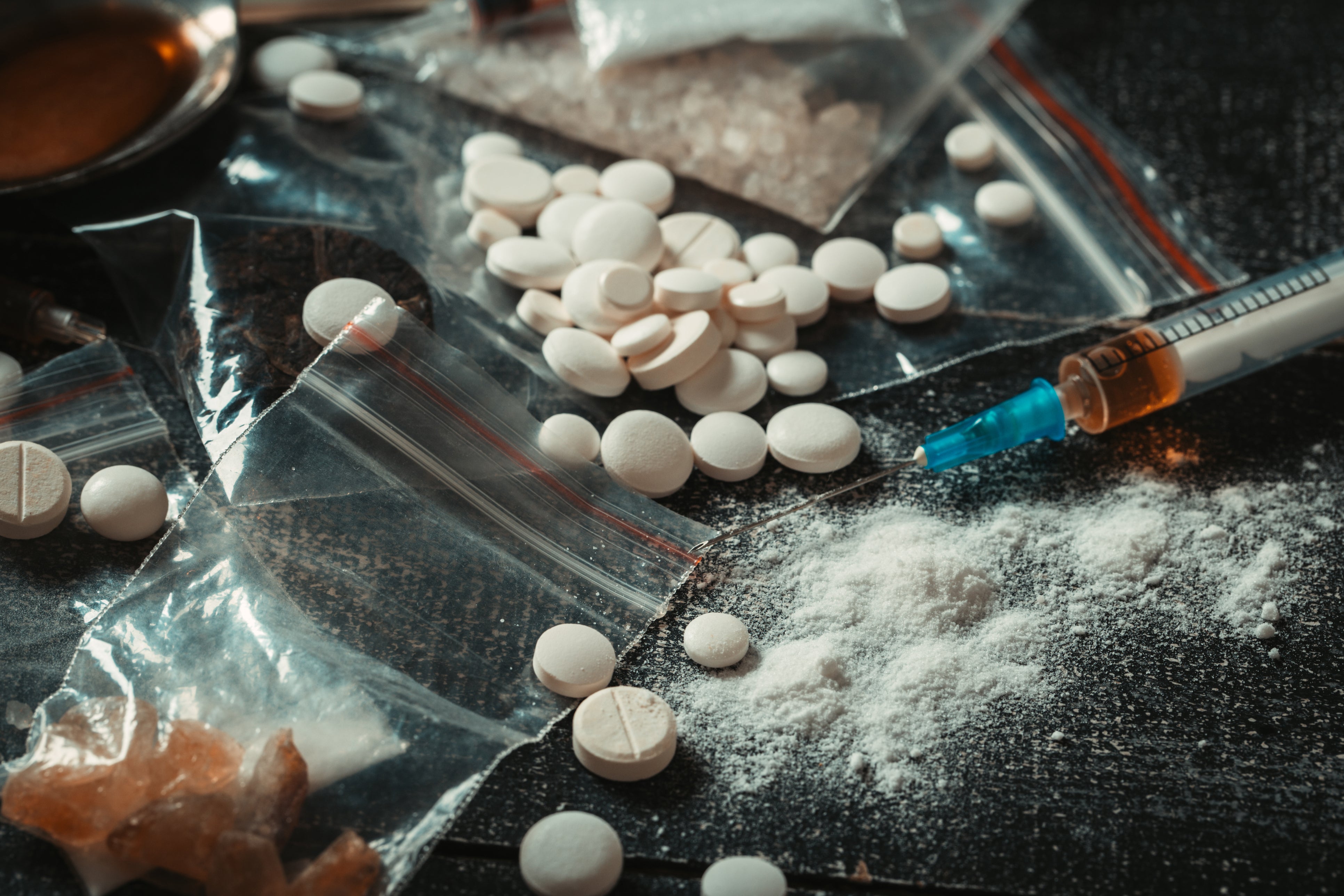Thousands of ads discovered selling super-strength opioids linked to 100 deaths
Killer new drugs ‘nitazenes’ can be so potent that a dose the size of a grain of sand can be fatal

Thousands of online adverts have been found selling deadly new super-strength opioids which have already been linked to over 100 UK deaths.
Nitazenes – which were recently made Class A illegal drugs – were found being advertised in posts on X, formerly Twitter, and music platform SoundCloud.
It comes after The Independent previously revealed the potent synthetic opioids – some of which are 500 times stronger than morphine – are flooding drugs markets and have even been detected in Britain’s prisons.
Now an undercover investigation has revealed how dealers are abusing social media to advertise the drugs which are then sent in the post.
The BBC England Investigations Team found evidence of nearly 3,000 posts on music site SoundCloud, some dating back a year.
Posts contained brief audio clips, often lasting just a few seconds, with the drug’s name and contact details appearing as the title of the track.
They also found more than 700 posts on X, formerly Twitter. The oldest had been on the platform for more than 18 months.
One of the suppliers advertising on X had been indicted and sanctioned in the US in September 2023 over the shipping of 15kg of nitazenes from China. However, reporters were able to find a post from the same seller still visible on X in March 2024.
Posing as a drug dealer, undercover reporters contacted 35 suppliers – this included 14 who were advertising on SoundCloud, six who were advertising on X, and 15 who were contacted via a website promoting wholesale chemical manufacturers.
Shockingly, 30 offered to post the drug to the UK.
SoundCloud said it and other social media platforms are “being targeted by bad actors” and promised to do “everything we can to tackle this worldwide epidemic”. It has removed nearly 3,000 posts.
Meanwhile, X removed hundreds of posts after being contacted by reporters. However, many remained online four weeks later, according to the BBC.
Their findings come after more than two deaths a week on average have been linked to nitazenes since June last year, according to The National Crime Agency.
One of the first UK deaths was 21-year-old musician Dylan Rocha from Southampton, who died after unknowingly taking heroin which contained nitazenes.
Dylan’s mother, Claire, said the findings were “shocking”, adding: “How has that been allowed to happen? How many people have died as a result of that being advertised there?”
Professor Vicki Nash, director of the Oxford Internet Institute, told the BBC: “Finding adverts on this scale, hundreds, thousands of adverts, is horrifying with potentially a very significant risk to human life.”
Last year experts warned The Independent of the threat posed by nitazenes, which are increasingly being discovered in heroin supplies or in contaminated tablets sold as counterfeit prescription drugs like Xanax or Valium.
They called for urgent action amid fears the arrival of nitazenes could spark a US-style opioid epidemic and usher in the biggest emergency since the HIV and Aids epidemic hit drug users in the 1980s.
Nitazenes were first developed in the 1950s as a painkilling medication, but are so potent and addictive they were never approved for use.
Even the smallest doses could have potentially fatal consequences for unwitting users without ready access to naloxone – a life-saving treatment to reverse opioid overdose.
Earlier this month we also revealed nitazenes have already claimed two lives in Britain’s prisons.
Mike Trace, a former government drug tsar, told the BBC: “In terms of drug-related deaths, the arrival of nitazenes is probably the biggest new challenge, new fear, we have.
“We are currently experiencing an ‘overdose crisis’, with nearly 5,000 drug-related deaths in England and Wales each year.
“If nitazenes come into this market in a big way, that death rate could spiral and double or treble.”
A Home Office spokesperson said there had been an “intensive operational effort to track down [nitazenes] and their suppliers”.
The New Drug Threat will broadcast on BBC One South on Monday 22 April at 20:30 and will be available on BBC iPlayer.
Subscribe to Independent Premium to bookmark this article
Want to bookmark your favourite articles and stories to read or reference later? Start your Independent Premium subscription today.
